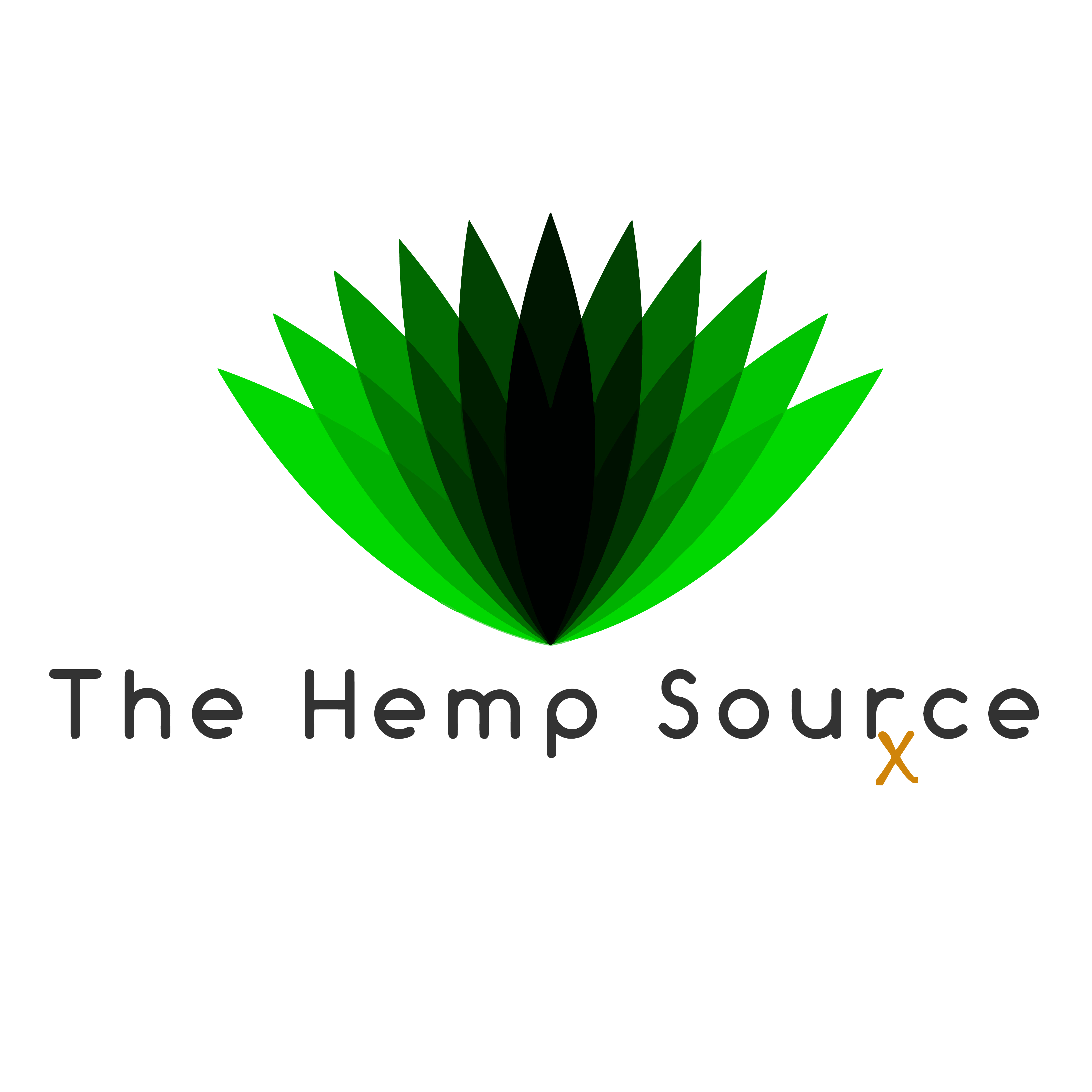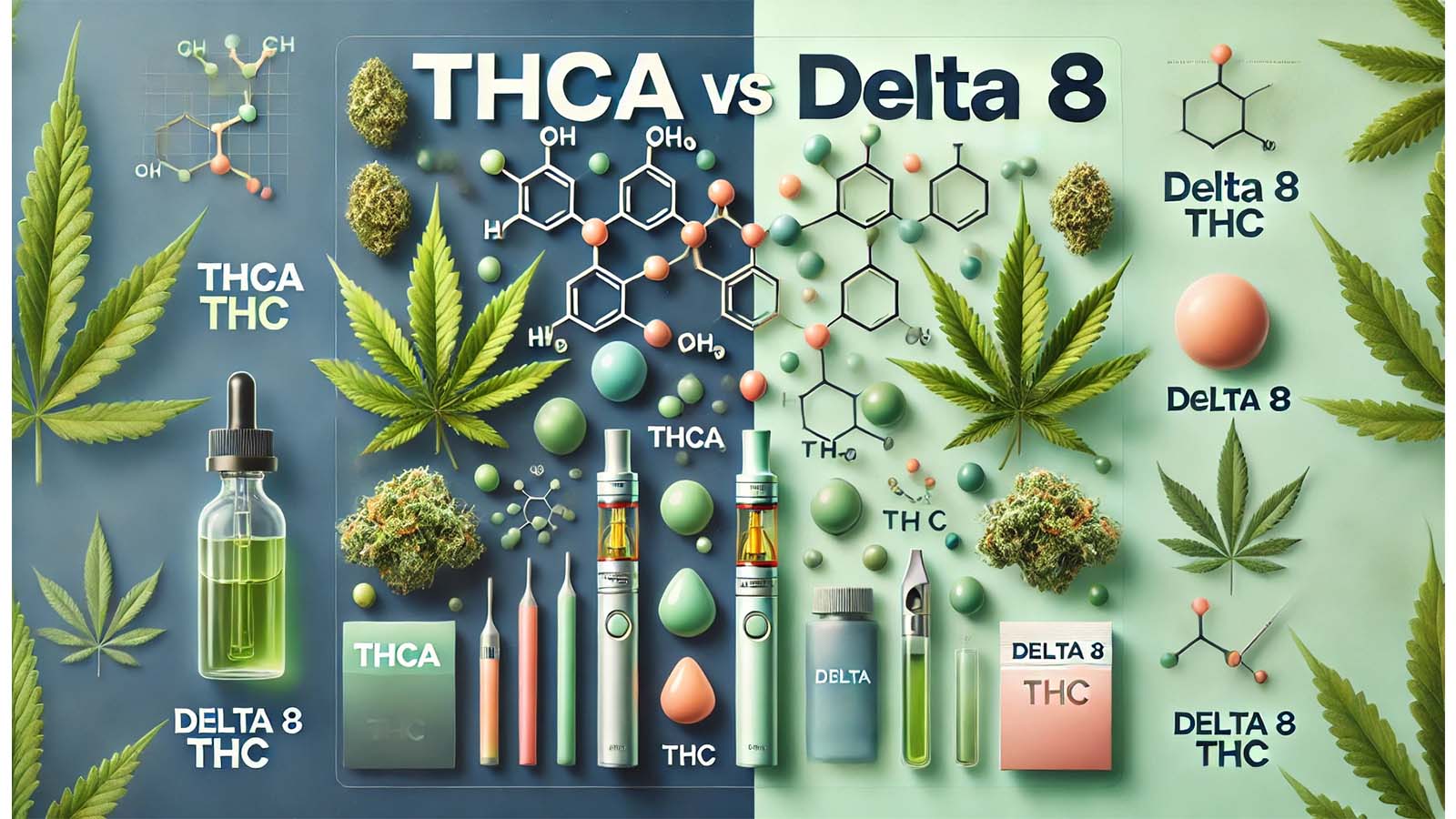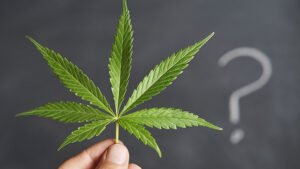THCa vs. Delta 8
Cannabis continues to amaze with its diversity, providing substances that address a variety of requirements. Because of their unique characteristics, Delta 8 THC and THCa stand out among the numerous other cannabinoids. Despite being from the same plant species, they have rather diverse effects and applications. To assist you better comprehend these two cannabinoids’ distinct roles, we’ll split them down here.
The Basics of THCa
THCa is the raw, unaltered form of THC found in fresh cannabis. It is not psychoactive, unlike THC, therefore ingesting it unprocessed won’t result in a “high.” This is due to the extra carboxyl group in its molecular structure that prevents it from interacting with CB1 receptors in the brain. THCa, on the other hand, decarboxylates when heated, becoming psychoactive THC.
Many people like THCa because of its potential therapeutic qualities. According to studies, it might have neuroprotective and anti-inflammatory properties, which would make it a promising treatment for diseases including arthritis and neurological issues. THCa also has the ability to reduce nausea and boost appetite, which can help patients undergoing chemotherapy or other treatments.
Understanding Delta 8 THC
A mildly psychoactive cannabinoid, delta 8 THC is sometimes referred to as a milder form of delta 9 THC. The chemistry of Delta 8 and Delta 9 differs because Delta 8 has a double bond on the eighth carbon chain, whereas Delta 9 has one on the ninth. This small modification has a big influence on its effects.
Unlike THCa, Delta 8 binds directly to CB1 and CB2 receptors, producing a calming high. Numerous users claim that it relieves tension, promotes relaxation, and produces pleasure without the intensity or paranoia that are frequently linked to Delta 9 THC.
It has also been noted for its potential to alleviate pain and promote better sleep, making it a versatile choice for both recreational and medicinal purposes.
Psychoactivity and Effects: Key Differences
Psychoactivity is one of the most obvious distinctions between THCa and Delta 8 THC. In its natural state, THCa is completely non-psychoactive. It only becomes intoxicating when decarboxylated through heat. However, compared to Delta 9 THC, Delta 8 THC has much milder effects but is still psychoactive by nature. Because of this, Delta 8 is perfect for people looking for a softer, easier-to-handle cannabis experience.
Because it can provide therapeutic effects without changing a person’s mental state, THCa is highly valued.
It’s often consumed through methods that preserve its raw form, such as juicing cannabis leaves or using it in tinctures. Delta 8, on the other hand, is favored for its relaxing and mildly euphoric effects, making it suitable for unwinding after a long day or managing anxiety.
Legal Considerations
Various jurisdictions have varied legal statuses for THCa and Delta 8 THC. The 2018 Farm Bill states that hemp-derived THCa with less than 0.3% Delta 9 THC is legal under federal law. However, its status may differ in individual states. Delta 8 THC occupies a similar legal space, being federally permitted if derived from hemp, but some states have implemented bans due to its psychoactive nature. Before consuming or purchasing any of these cannabinoids, make sure to verify local laws.
Potential Applications and Products
THCa is frequently seen in wellness and health goods. Its non-psychoactive nature makes it a great choice for people looking to harness cannabis’ benefits without any mental impairment. Common forms include raw cannabis juices, tinctures, and topicals that target inflammation.
Delta 8 THC has a broader appeal due to its psychoactive properties. Popular product formats include vapes, gummies, and tinctures, which offer convenient ways to enjoy its effects. Delta 8 offers a flexible solution for a range of requirements, including stress reduction, pain alleviation, and relaxation.
Side Effects to Consider
Both THCa and Delta 8 THC are generally well-tolerated, but they are not without potential side effects. THCa is unlikely to cause significant issues, though consuming large amounts of raw cannabis could lead to mild digestive discomfort. Delta 8 THC may cause dry mouth, red eyes, or drowsiness, and overconsumption can result in mild anxiety or confusion. In contrast to Delta 9 THC, these effects are usually less noticeable.
Making the Right Choice
Making the choice between THCa and Delta 8 THC depends on what your overall goal is. If you’re looking for a non-psychoactive option to support health and wellness, THCa is an excellent choice. On the other hand, if you prefer a mild high with calming and euphoric effects, Delta 8 THC may be more suitable.
Final Thoughts
Each of THCa and Delta 8 THC has unique benefits that satisfy different needs and preferences. THCa provides a natural, therapeutic option without psychoactivity, while Delta 8 delivers a balanced, mellow high that’s perfect for relaxation and stress relief. Making educated decisions regarding which cannabis is best for you requires an understanding of their differences. Whether you prioritize wellness or recreation, both THCa and Delta 8 open the door to new possibilities in the world of cannabis.









